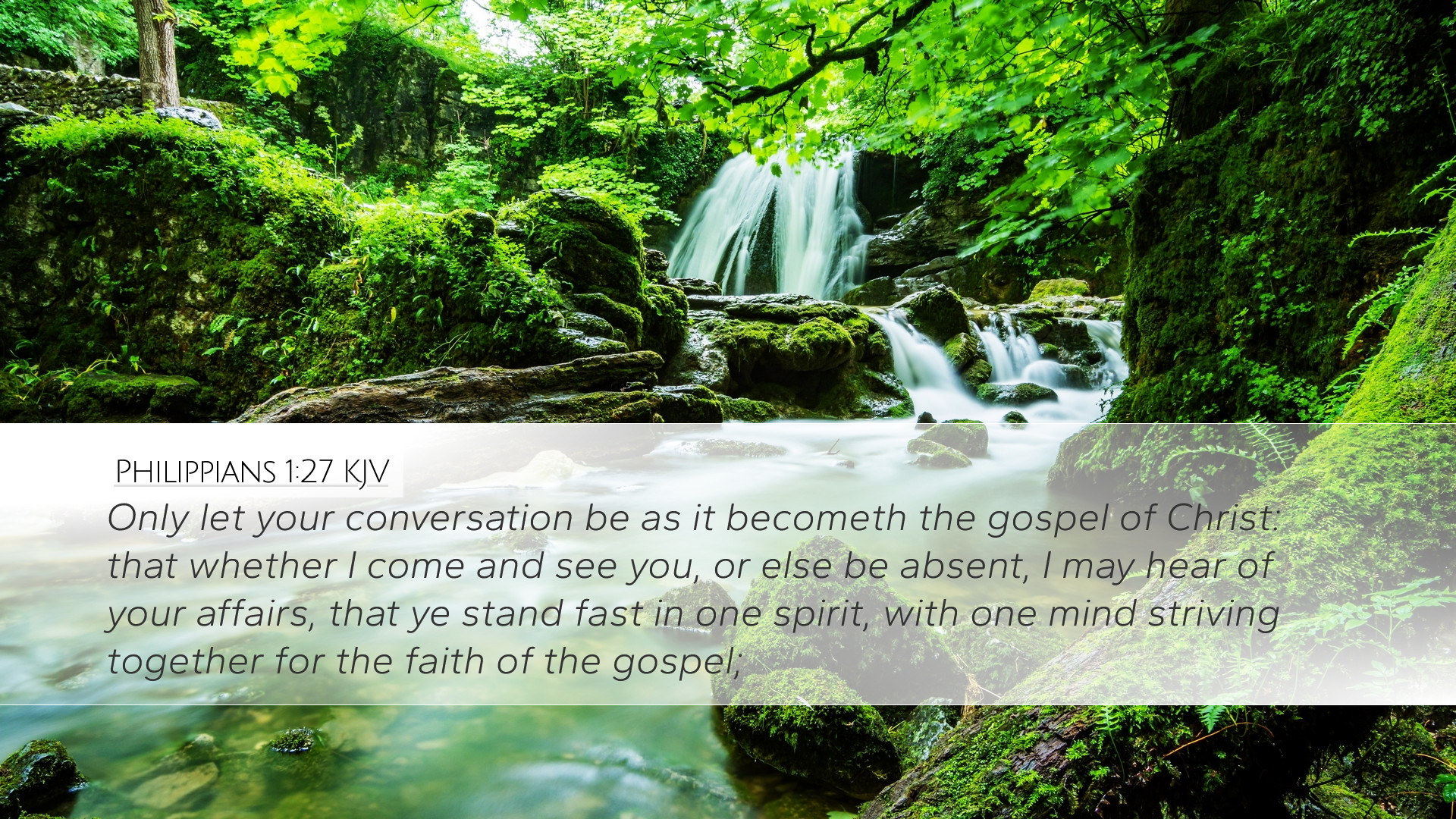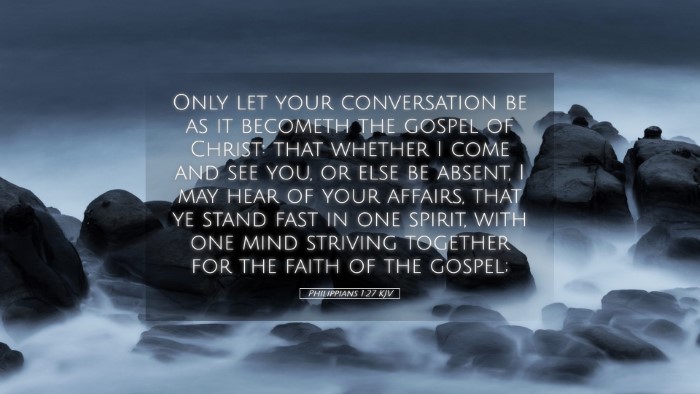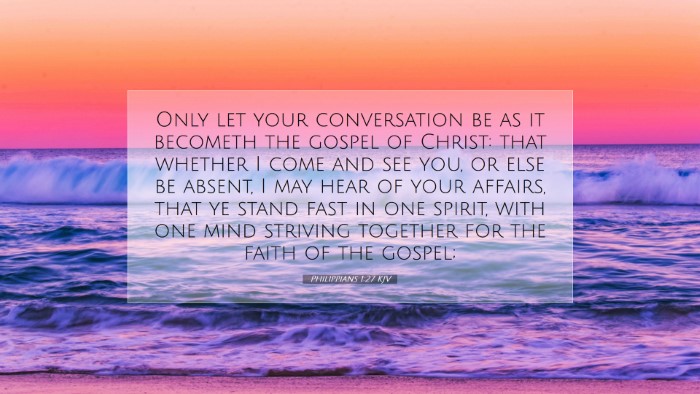Commentary on Philippians 1:27
Philippians 1:27 states: "Only let your conversation be as it becometh the gospel of Christ..." This verse serves as a pivotal exhortation in Paul's epistle to the Philippians, focusing on the conduct and behavior of believers in light of the Gospel.
Contextual Background
Paul penned this letter while imprisoned, and his primary intent was to encourage the Philippian church to remain steadfast in their faith. Here, he emphasizes the importance of living a life reflective of the Gospel, which is essential for both individual faith and communal witness.
Overall Exegesis
This verse can be divided into several key components, each ripe for exploration:
- Conduct as an Expression of Faith
- Unity in the Spirit
- Witnessing to the World
1. Conduct as an Expression of Faith
Matthew Henry emphasizes that believers are called to engage in a manner that is consistent with the principles of the Gospel. He notes, “Our conversation or conduct, even when we are in our secular callings, should reflect the principles of the truth we profess.” This emphasis on authenticity suggests that one's public and private lives should be in harmony with their faith claims.
2. Unity in the Spirit
Albert Barnes highlights that Paul is urging the church to stand fast in one spirit, indicating that a unified demeanor is essential. He writes, “The expression implies that they should strive together for the faith of the gospel, suggesting that mutual support and harmony among believers are vital for the Christian life and witness.” This aspect of community underscores that Gospel conduct is collective, not merely individual.
3. Witnessing to the World
Adam Clarke notes that living in a manner worthy of the Gospel is also about the church's witness to outsiders. He remarks, “If the congregation reflects the virtues of the Gospel of Christ, it becomes a beacon to a lost world.” The implication here is that ethical behavior and righteous living hold profound consequences for evangelism and outreach.
Practical Applications
As we delve into Philippians 1:27, various practical applications emerge for pastors, theologians, and students:
- Assessing Personal Conduct: Continuous reflection on how one’s life embodies Gospel principles is crucial for spiritual growth.
- Encouraging Community Support: Churches should foster environments where unity and cooperative efforts in faith are prioritized.
- Strengthening Witness: Believers must recognize the impact of their behavior on non-believers, striving towards moral integrity as a testimony.
Theological Reflections
This verse stimulates essential theological reflections about the nature of salvation and sanctification:
- The Nature of Salvation: Genuine faith must manifest in corresponding works, demonstrating that true salvation naturally results in an altered life.
- Sanctification as a Process: The call to have a conduct worthy of the Gospel encourages believers in their journey of becoming more like Christ.
- Kingdom Ethics: The verse invites a deeper understanding of how believers embody the ethics of the Kingdom of God in a fallen world.
Conclusion
Philippians 1:27 serves as a profound reminder of the interconnection between belief and behavior. The insights from classic commentaries reflect a rich understanding of how believers are called to conduct themselves in a manner worthy of the Gospel. As the Church contemplates these truths, may it lead to transformative practices that uphold the integrity of the Gospel both within and without its walls.


